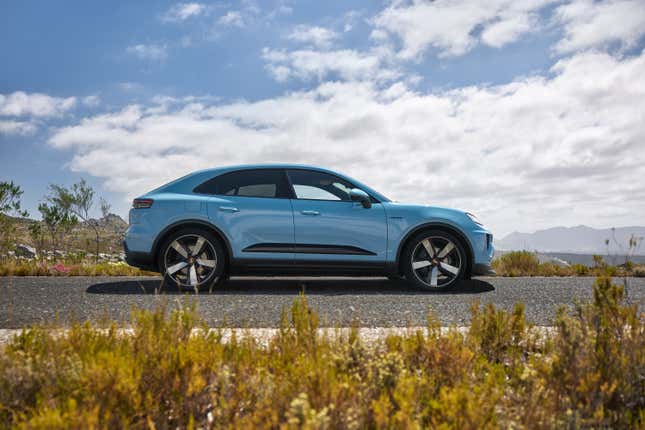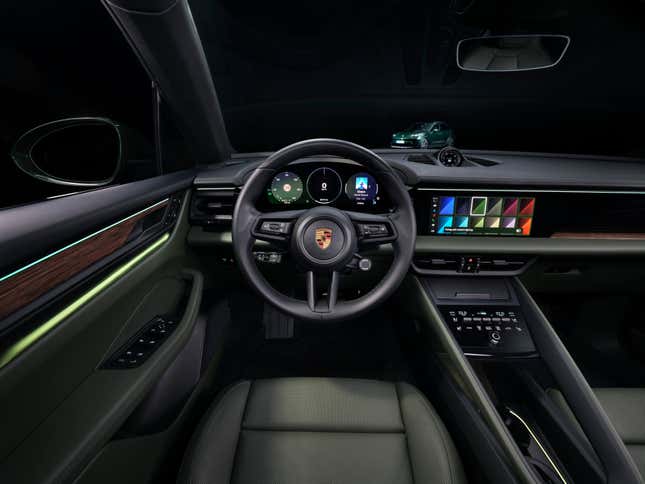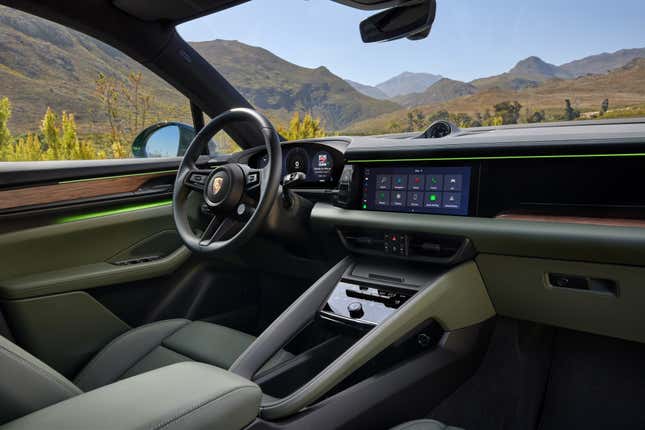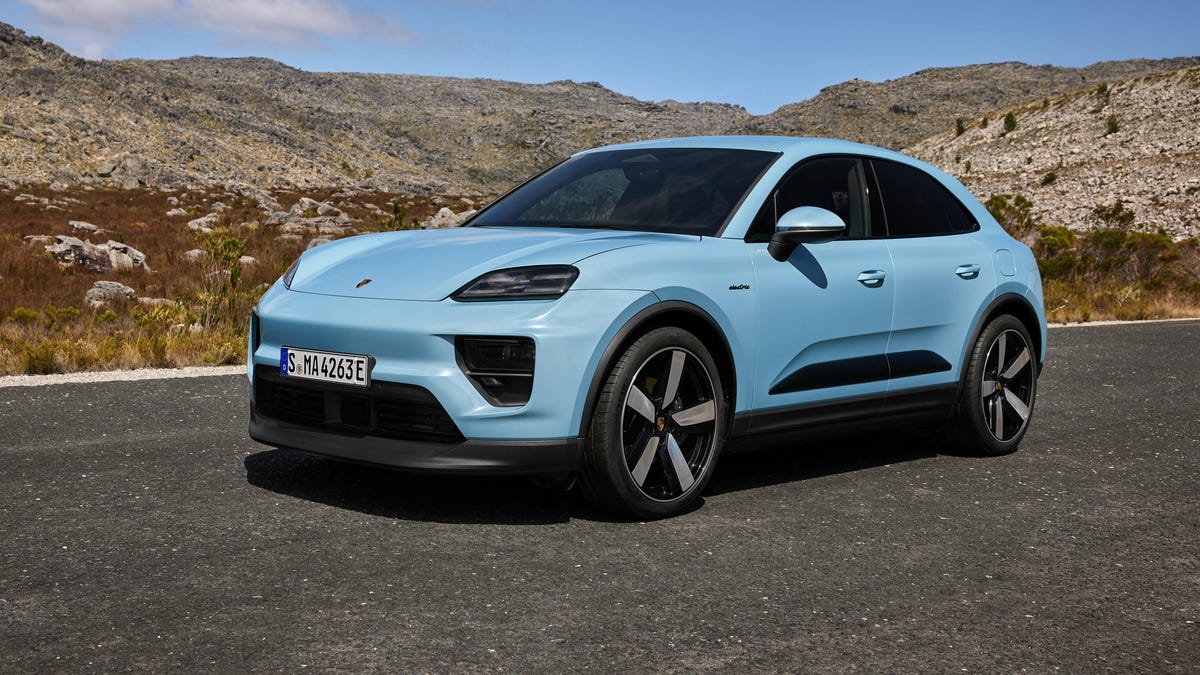Like its larger Cayenne sibling, every version of the Porsche Macan crossover has come with all-wheel drive as standard. That is, until now. Porsche just unveiled the base version of the new Macan Electric, and it’s rear-wheel drive. Quicker and more powerful than the base gas-powered Macan, I think this new RWD model is the first time the Macan can truly be called a hot hatch — if the Ioniq 5 is a hot hatch, this certainly is too.
Where the gas-powered Macan shares its front-wheel-drive-based platform with the Audi Q5 and its base engine with the Volkswagen GTI, the electric Macan’s PPE platform is modular so the motors and batteries can basically go wherever the engineers want. For a single-motor powertrain, you choose whether to put the motor at the front or rear axle based on efficiency, performance, packaging and styling. When the Macan EV was first announced the lineup started with the Macan 4, which is a dual-motor all-wheel-drive setup. This new model, just called Macan, has one motor at the rear axle.
The base Macan EV’s rear motor is the same one used in the Macan 4. In normal driving it makes 335 horsepower, an increase of 74 hp over the gas Macan’s turbocharged four-cylinder engine. When Launch Control is activated output is boosted to 355 hp and 415 pound-feet of torque, which is good enough for a 0-to-60-mph time of 5.4 seconds, 0.4 seconds quicker than the gas Macan. Top speed is 136 mph, just 8 mph slower than the ICE car. Compared to the electric Macan 4, the base EV is 47 hp less powerful and 0.5 seconds slower to 60 mph, but Porsche says the rear-drive model is 243 pounds lighter than the Macan 4, which, yes, is heavy as hell as I’m sure you will say in the comments.
Porsche also released the electric Macan 4S, which serves as the Goldilocks model between the Macan 4 and the Macan Turbo (until the eventual Macan GTS comes out, that is). The Macan 4S has a new motor in the rear and a more powerful pulse inverter, while the front motor as the same as what’s in the 4 and the Turbo. Total output is 442 horsepower in normal driving or 509 hp and 578 lb-ft with Launch Control, with a 3.9-second 0-to-60 time and a 149-mph top speed. That’s 121 hp and 255 lb-ft less than the Macan Turbo, and 0.8 second and 12 mph slower.
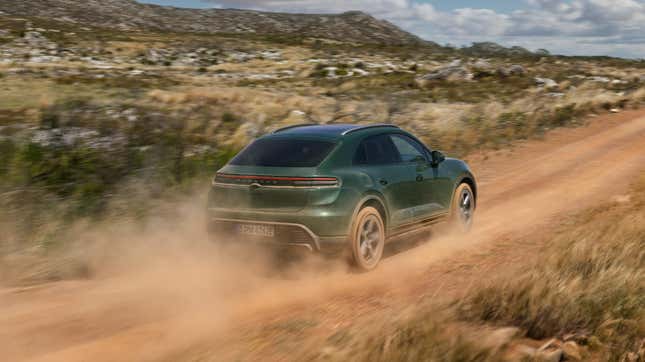
Both new versions of the Macan EV come standard with air suspension and adaptive dampers, and you can option them with rear-wheel steering. The Macan 4S is also available with Porsche Torque Vectoring Plus. Slate Grey Neo is a new color, there’s a new 20-inch wheel design, and you can spec an Off-Road Design Package that has different bumpers with better approach angles and a bit more ground clearance.
Order books are open now, and Porsche says U.S. deliveries will start in the fourth quarter of this year. The base Macan Electric starts at $77,295 (including $1,995 destination), $3,155 less than the Macan 4 EV but $12,400 more than the base gas Macan. You do get a lot more standard features in the electric Macan and an actually modern tech setup, so the real-world price difference isn’t as noteworthy. The electric Macan 4S opens at $86,895, almost exactly $20,000 less than the Macan Turbo EV.
The Macan is far from the only rear-wheel-drive EV; in fact, there are a lot of electric vehicles you might be surprised to learn are rear-wheel drive instead of front-wheel drive. Cars like the Chevrolet Blazer EV, Genesis GV60, Kia EV9, Polestar 3, Volkswagen ID Buzz and Volvo EX30 are all available with a rear-drive configuration, and it’s not always relegated to a base model.

